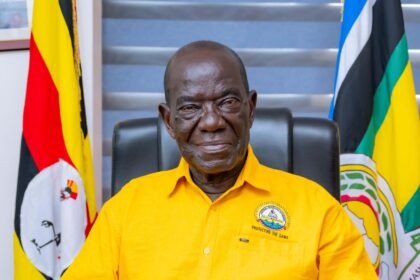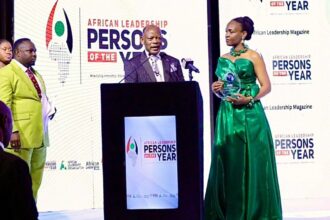By Denis Jjuuko
Every once in a while, students and lecturers at Makerere University unveil some innovative ideas and even products sometimes. You probably remember the sanitary pads made out of papyrus, an app that can detect pneumonia easily, or a mobile phone based scanner for pregnant women among many others. Usually, these innovative ideas win international awards.
Today, I am not sure what happened to the pads or the pneumonia app and indeed many other ideas and products. Only Kiira Motors seems to be progressing albeit on a snail’s pace.
These young innovators after they have left the university usually go on to do whatever they need to survive. Some end up underemployed and many unemployed. There is an engineer who graduated at Carnegie Mellon who, I am told, now works as a personal assistant somewhere after failing to find a job in his field. You can easily blame him for not starting a business, for not being innovative. Anybody who has ever done business in Uganda will tell you that the hardest job is to be self-employed. And there is no country anywhere in the world that has ever developed when the majority of its people are self-employed. The majority of people should be employed earning a predictable income — that is how a middle class is built.
Unlike in developed countries where it might be easy to live in your parents’ garage and work on your idea, sometimes a Ugandan graduate after university is instead expected to start looking after their siblings and/or parents. So the country ends up loosing its innovative force doing what they have to do to survive.
The reason for this situation is further illustrated in the Makerere University Visitation Committee report. “The government should develop a strategy for research and innovations, a commitment to a set of coherent, mutually reinforcing policies aimed at achieving a specific competitive goal,” the report reads in part. This indicates that as a country we don’t even have a policy on this. David Plouffe, the campaign manager for Barack Obama in 2008, in his book “The Audacity to Win” says that you rather have a wrong strategy that you stick to than none at all.
“The strategy should aim at promoting alignment among the research and innovation community, clarify objectives and priorities, and help focus and consolidate research and innovation efforts. Guided by the National Development Plan (NDPII) and Vision 2040, the strategy could have thematic areas identified for research and innovations to be funded every five years. After every five years, new thematic areas should be identified and supported,” it adds.
Although “the interventions by government such as the Millennium Science Initiative, the Presidential Initiative on Science and Technology are commended,” the report reads, “the government should sustainably operationalise the Research and Innovation Fund and scale it to catalyze Research and Innovation at national level.”
The report recommends that “the Revolving Fund should be competed for nationally by education and research institutions in both the public and private domains, encouraging multi-disciplinary teams of academics, researchers, students and practitioners, including inventors and industrialists. The Fund shall enable government to implement and monitor the National Research and Innovation Strategy.”
This is very important so that those who are innovative can get money to chase their dreams. Of course there must be a mechanism to monitor these innovators so that the funds are not used to fund excessive lifestyles. And because usually the innovators are young people, they may not have experience to manage a business. So the fund could pay for some staff such as experienced finance managers, lawyers, public relations experts, human resource officers, auditors among others and ensure that corporate governance exists in these companies.
However, this doesn’t mean that this should create unnecessary bureaucracy where the people hired start middling in technical issues they have no clue of. The idea is to ensure innovators don’t waste money and at the same time don’t worry so much where rent or money for internet services will come from. The innovators would earn a decent salary, which will enable them fulfill their personal, family and social responsibilities. However, they must have a say in the running of the company. The government can own a stake in the business.
This is important because as ideas are being nurtured, the profitability of the business may take years to be realised. Yet these innovators will have peer pressure when they see their friends driving around, buying their first plots of land, and marrying people of their dreams. Most companies that are so profitable today started without making any money. Facebook didn’t even have an idea how to monitise the millions of users that were signing up. Tesla Motors turns no profit today but they have the money that enables them to innovate.
This has in a way helped Kiira Motors. Although they are underfunded at the moment and need money to scale up, they have been able to at least pay some salaries to staff and produce three concept vehicles which have wowed the world given that CNN International is always reporting about them among other global media giants. Had Kiira Motors been American, they would be having millions of dollars to enable them do what they have to. Without any funding, Paul Isaac Musasizi and his engineers may actually be somewhere else in Kikuubo making lots of money. The little funding they have acquired has enabled them to build the capacity to make vehicles in Uganda, do the bare minimum and chase the dream towards commercialization. I am not sure for how long though they will stay. If the government doesn’t adequately fund them, they may end up at Toyota, Ford or Kikuubo. They need a few millions of dollars to move the company forward.
As a country, we must develop a culture of betting on ideas and funding them. That is the model the west used to develop. Failure is acceptable as long as people are willing to continue trying until something is got right. It is time we seriously take that path.
The writer is a media consultant and businessman. djjuuko@gmail.com
*Internet photo
Do you have a story in your community or an opinion to share with us: Email us at Submit an Article






